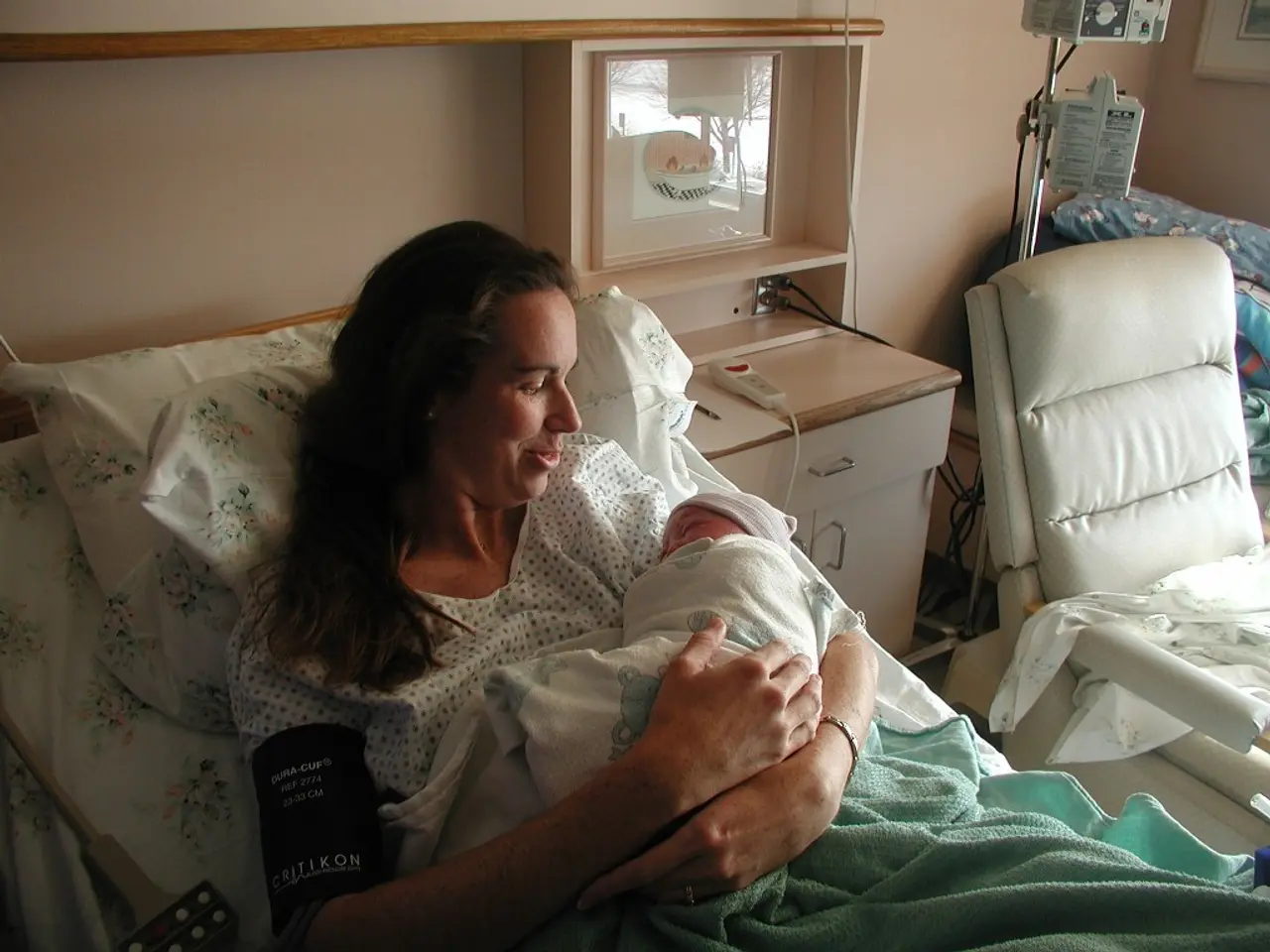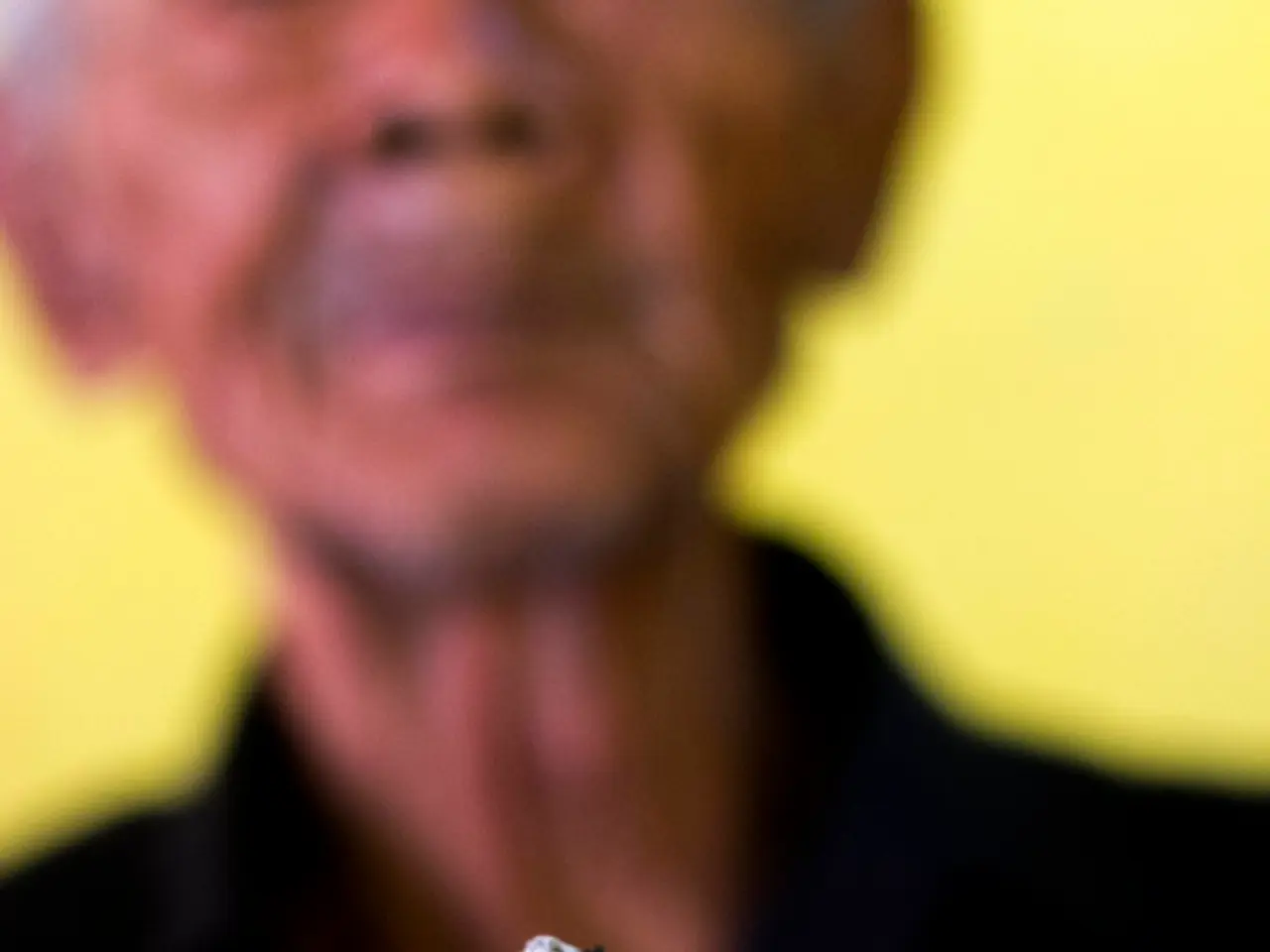Customary Practices in Postnatal Care Among Nigerians Explained
In the vibrant and diverse country of Nigeria, the care and nurturing of newborns are deeply rooted in tradition, offering a unique blend of cultural rituals, herbal remedies, and family support systems. These practices, while evolving with modernization, continue to play a significant role in ensuring the health and development of infants.
Postpartum care, in particular, is a crucial aspect of family life in Nigeria. Herbal baths and massages are significant in the healing process, offering relaxation, relieving body pain, and aiding in the mother's physical and emotional recovery. Traditional foods and diets are carefully chosen for their nutritional value and healing properties, further supporting the mother's recovery. Breastfeeding is highly encouraged, with beliefs that breast milk provides essential nutrients and builds the baby's immunity.
Newborn care practices also involve traditional bathing techniques, such as bathing newborns with palm oil and native sponges, which is believed to benefit the baby's skin. Midwives and traditional birth attendants, often referred to as TBAs, play a crucial role in childbirth and newborn care, providing emotional support, physical comfort, and medical care.
Superstitions and taboos also play a significant role in newborn care in Nigerian culture. Visitors, especially women who are menstruating, are not allowed near the newborn. Certain foods and items are considered taboo in the newborn's environment. The evil eye, known as "ayo," is a widespread belief, and protective measures such as charms or amulets are used to ward off negative energy.
One unique tradition is the 'Omugwo' in Igbo culture, where the new mother is cared for by her grandmother or a senior female relative for about 40 days postpartum. This caregiver supports the mother and newborn with rest, nutrition, and specific baby care practices to ensure optimal recovery and bonding.
Home births are commonly practiced in Nigeria, with many cultural beliefs and rituals attached. Naming ceremonies, held on the eighth day after the birth of a child, hold significant cultural and spiritual importance. With modernization and globalization, these traditional beliefs surrounding newborn care have started to shift, but they still hold strong in many Nigerian communities.
Official health policies exist to strengthen maternal and child health over wider populations, but traditional methods remain influential in many communities. The extended family support system, known as 'omugwo,' provides a network of assistance and guidance during postpartum recovery. Baby-wearing in Nigerian culture promotes bonding and keeps the baby secure and calm.
These practices highlight the integration of herbal remedies, family support systems, and cultural rituals in newborn care in Nigeria, particularly in rural and traditional settings. As the world continues to evolve, these age-old practices continue to provide valuable insights into holistic care and the importance of family and community in the nurturing of new life.
- Education about nutrition, health, and safety is crucial for mothers and children in Nigeria, integrating traditional practices with modern scientific knowledge in health-and-wellness and lifestyle.
- During the healing process post-childbirth, herbal baths and massages, as well as carefully chosen traditional foods, are vital for the mother's recovery in the vibrant culture of Nigeria.
- Breastfeeding is encouraged in Nigerian culture because of its belief in providing essential nutrients and building the baby's immunity, playing a vital role in the infant's health and development.
- In Nigeria, traditional birth attendants, or TBAs, offer emotional support, physical comfort, and medical care during childbirth and newborn care, while superstitions and taboos regarding certain foods and visitors also significantly impact practices.
- A unique tradition in Igbo culture is the 'Omugwo,' where the new mother is cared for by a senior female relative for about 40 days postpartum, supporting her rest, nutrition, and specific baby care practices.
- In many Nigerian communities, home births are common with rituals and cultural beliefs attached, such as naming ceremonies held eight days after the child's birth, maintaining spiritual importance.
- With the influence of traditional methods and family support systems like extended family care, or omugwo, parents can promote bonding, keep babies secure, and provide guidance during postpartum recovery and beyond.




